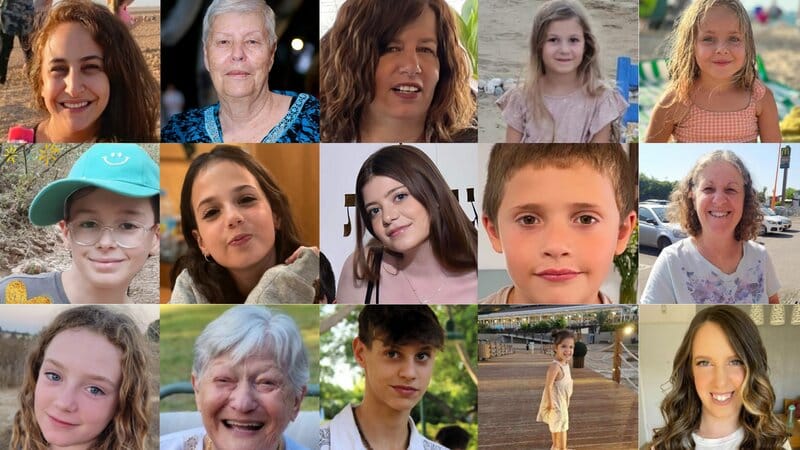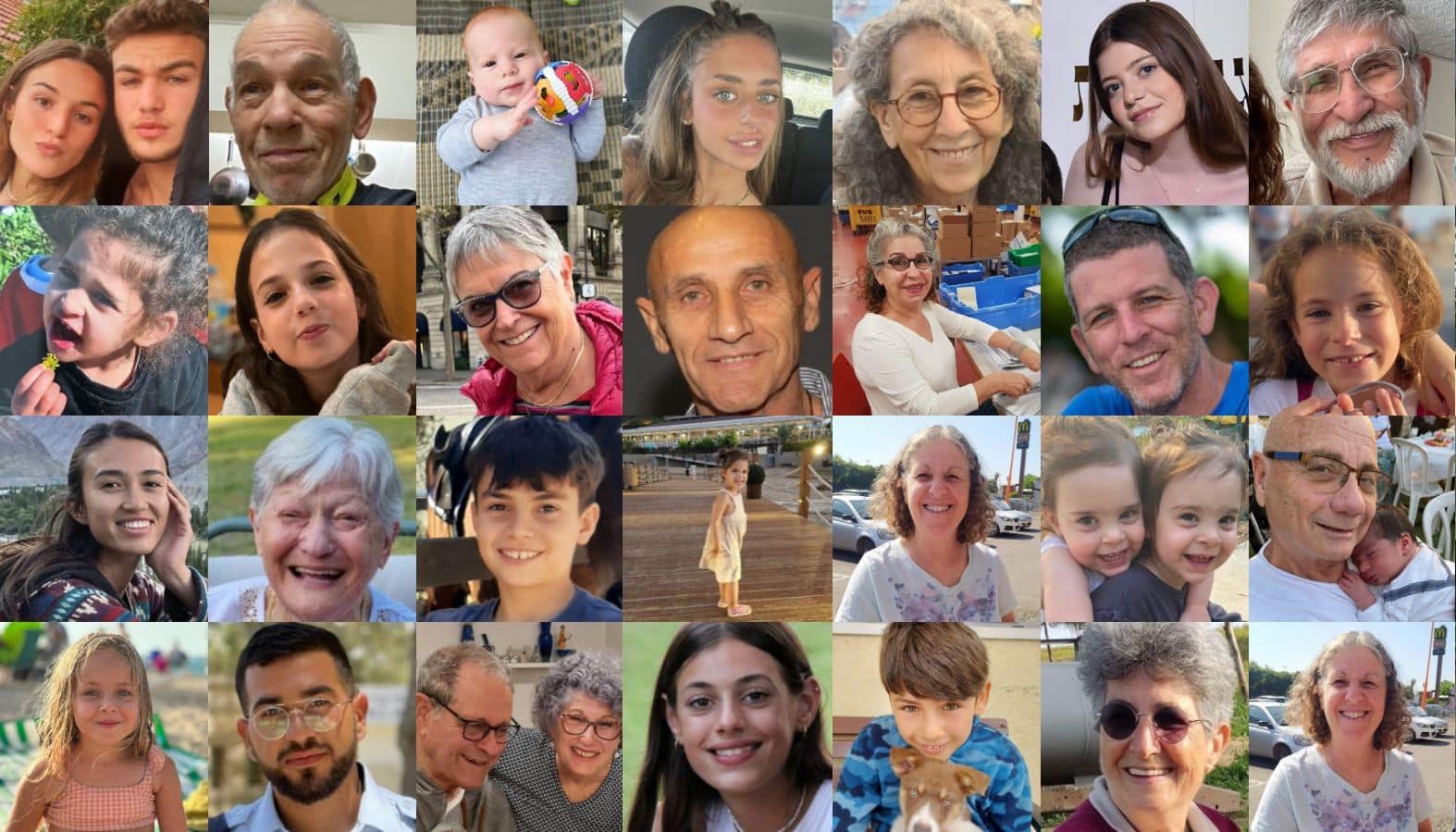Austrian Philanthropist Gives Kibbutz Members a Vienna Vacation

Leon Lefkowitz, an Austrian Jewish philanthropist, hosted 260 people from the Gazan border community Nahal Oz for a week-long trip to Austria. The 260 people came in seven groups over six weeks and had a marvelous time of refreshment and regrouping after the stress and horror of the last few months. During their vacation, Lefkowitz covered their flights, hotels, meals, and activities—including skiing, visiting an amusement park, and going to a zoo. More than one-third of the Israeli visitors were children. A few children, upon arrival, asked Lefkowitz where the safe room was. Their sense of safety and security had been shattered.
Lefkowitz explained, “People are sacrificing their lives and, as a Jew living abroad, I felt that it was something I could help with, to try to alleviate some of their trauma and give them hope and light, and especially someone to listen to their stories.” As the guests arrived in Austria, government officials and journalists welcomed them and listened as they spoke about their experiences.
One kibbutz resident said, “We’re returning home with renewed spirits and the strength to move on.” Another guest wrote in a follow-up letter to Lefkowitz, “You’ve given us a lot of light in such a challenging time. We didn’t know each other before, but meeting you felt like we’ve known each other for years.” Many plan to stay in contact.
Please pray for the tight-knit members of all the kibbutz border communities as they struggle with the loss of their homes, family, and friends.
Gaza Border Kibbutz Communities Seek Longer-Term Housing

Most residents of Israeli small towns and kibbutzim close to Gaza had to evacuate immediately after the horrific events of October 7. Hamas terrorists burned or destroyed many of their homes. Their locations are extremely unsafe because of their proximity to Gaza. Most of the kibbutz residents have been living in hotels in Israel’s southernmost city of Eilat or at the Dead Sea. These locations were chosen because they are full of hotels far from potential rocket fire. After almost three months, the residents need to find a longer-term place to live. Some may never be able to return to their destroyed homes and kibbutzim.
The 435 members of Kibbutz Re’im have been living together in Eilat. They recently moved into two brand-new apartment buildings in Tel Aviv. Some are ready to settle down, but living in the heart of a big city without open spaces or quiet around them is contrary to their former kibbutz life. On a kibbutz, the kids can roam freely from house to house, play with friends, and ride bikes. This way of life will not exist in Tel Aviv. Still, they are grateful to have much of their rent covered and social services from the city of Tel Aviv. The new buildings’ owners will give a year-long lease to Kibbutz Re’im residents so they can remain together though many are hoping to return to Re’im before the year is through.
Members of Kibbutz Nahal Oz have a similar story. They have been living in the northern/central area of Israel called Afula. These families recently moved into another kibbutz, Mishmar Ha’Emek, becoming a kibbutz within a kibbutz. They have their own dining hall, but everyone gathers for the Friday evening Sabbath meal. The children go to school with Kibbutz Mishmar Ha’Emek children but have their own classes. As much as possible, the same children are together in the classes they had back at home. Israel’s 230 kibbutzim around the country vary in different degrees of communal living. Some still have a fleet of cars everyone shares, some pool their money, and some have a youth hall where the children can sleep.
Please pray for the members of the kibbutzim as they try to re-establish themselves in new environments.
Read more about the new towers in Tel Aviv . . .
Read more about the new kibbutz . . .
Israeli University Semester Finally Begins

Israeli universities should have begun their semester on October 15. However, as a result of the war, they had to delay their start until now. Finally, the universities feel sufficiently safe and ready to start the semester. The events of October 7 and the subsequent call-up of 360,000 reserve soldiers have altered the university landscape. An estimated 100,000 soldiers, representing 30 percent of all university students, want to join their classmates this semester. Thousands of faculty have also been called up.
To start classes while accommodating reservists, this semester will follow an unusual schedule. It will be divided into two eleven-week course sessions. Given exam schedules and time off during the Jewish high holidays in the fall, the normal summer vacation will be lost. When the Israeli Defense Forces release more reservists, they will have a condensed week of intensive classes to prepare them to return to their normal classes. None of these changes are ideal, but schools deem them necessary so students do not miss a whole semester.
Please pray for the students to return to coursework easily. Many are still dealing with trauma and fear.
Read more about the delayed academic year . . .
Read more about the Council of Higher Education’s directives . . .
War and Rising Antisemitism Lead to Deep Conversations

Here is a recent story from one of our staff in Israel:
Conversations here in Israel go deep very quickly these days. The war leaves people with many big life questions. I was talking to my neighbors Yossi* and Chaya.* As we spoke of the difficulties of the war and global antisemitism, the conversation turned to internal peace and hope in the midst of it all. They know about my faith, and we have had short conversations about Jesus before, but now they are more interested.
“So, it’s not just that being a Jewish follower of Jesus is a religion but it somehow affects your daily life?” they asked. I talked about having a relationship with God, praying, reading His Word, and knowing He is with me. Then I spoke about forgiveness, redemption, and eternal life through Jesus our Messiah. They asked how I came to believe this. After telling my testimony and reading Isaiah 53, they said it was really interesting. They seem open in a new way!
Please pray for Yossi and Chaya—for the seeds planted to grow, for more conversations, and mostly for them to come to know Jesus.
* Name changed.



